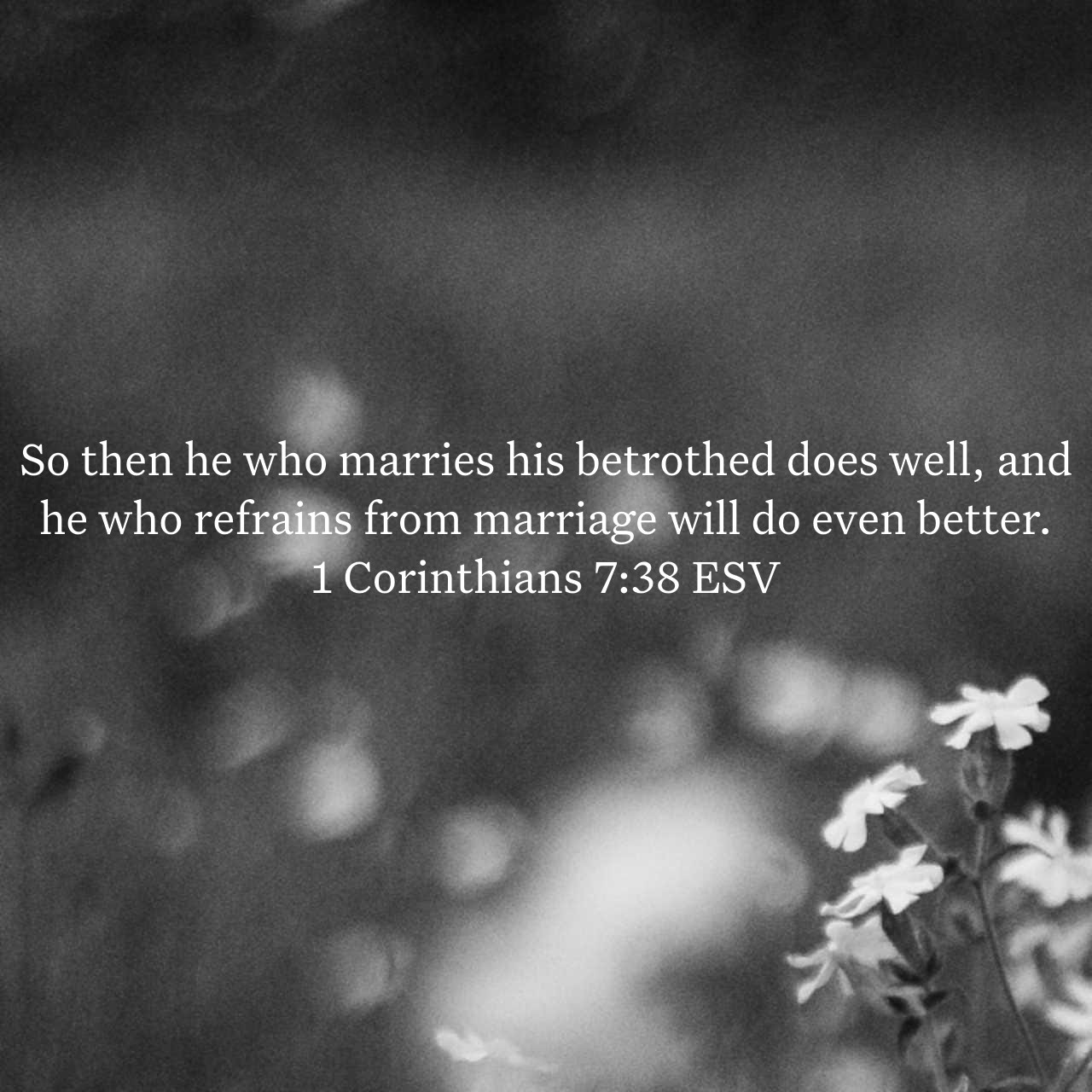Devotional 19 November 2025

Paul’s closing words in 1 Corinthians 7 challenge many modern assumptions about marriage and the Christian life. While our culture often treats marriage as the expected path (and sometimes as the pinnacle of Christian maturity) Paul does something very different. He calls believers to a deeper principle that governs all decisions: be holy.
For Paul, the question is never, “Are you married or single?” but always, “Are you living in holiness before the Lord?” Whether the man in verse 36 chooses to marry his betrothed or remain as he is, Paul says, “he does not sin.” Why? Because holiness is not found in a particular relational status but in a heart submitted to Christ (Romans 14:5–8; Colossians 3:17). Be holy.
Paul acknowledges the reality of human desire. If passions are strong, marriage is wise, “it is better to marry than to burn with passion” (1 Corinthians 7:9). If, however, someone has “self-control” and a firm desire to remain single for devoted service, that choice is good as well (7:37). What matters is purity of body and heart (1 Thessalonians 4:3–5). Be holy.
Even widows are free: free to remarry “only in the Lord” (7:39) or to remain as they are. Paul expresses his Spirit-guided judgment that remaining single gives greater freedom for undistracted devotion (7:32–35). But whichever path is taken, his refrain is clear: the goal is faithfulness, purity, and devotion to Christ (Philippians 3:13–14). Be holy.
Marriage is good (Genesis 2:18–24; Hebrews 13:4). Singleness is good (Matthew 19:12). Paul exalts neither. Instead he lifts up the one thing that gives meaning to both: a life lived in obedience to God. Holiness is the aim in every condition, every desire, every decision.
So Paul widens the path. If you marry, be holy. If you remain single, be holy. If you have desire, be holy. If you have peace, be holy.
In every circumstance, Paul calls us to the same truth: “As He who called you is holy, you also be holy in all your conduct” (1 Peter 1:15).